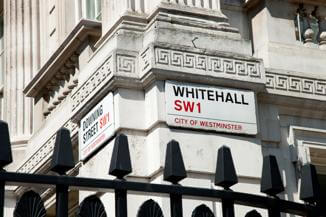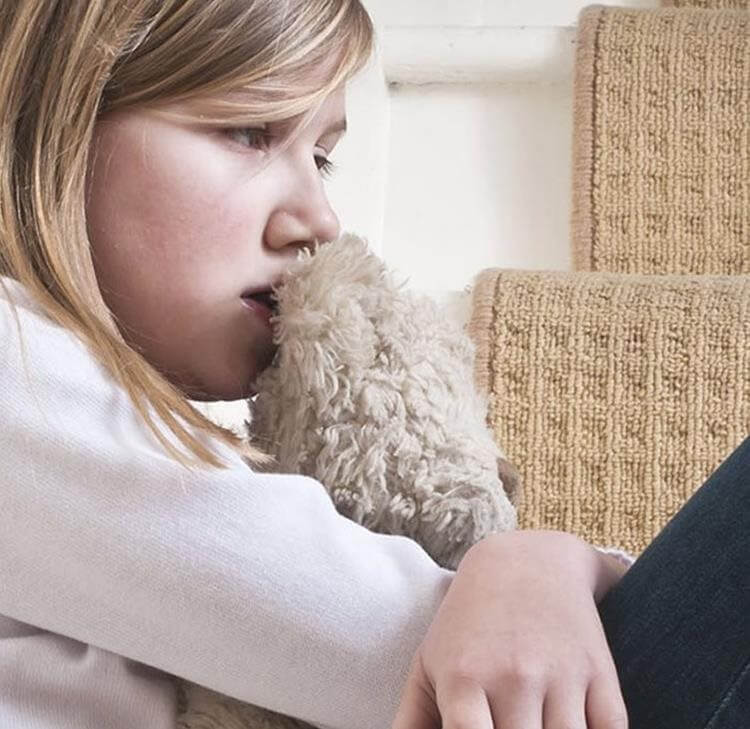
Sarah Erwin-Jones
Partner
Nottingham
Sarah.Erwin-Jones@brownejacobson.com
+44 (0)115 976 6136
Sarah is our leading lawyer on redress, abuse and assault claims. Recognised by the Legal 500 since 2015 as a standout expert in child and adult abuse claims, as well as safeguarding advice, Sarah has a particular interest in working with social care, sports and faith organisations as well as many charities.
As a result of her experience, Sarah has been asked to give evidence and advise clients in responding to public inquiries. She dealt with the personal injury claim that followed the tragic death of Victoria Climbié and has been involved in a number of high-profile group actions, taking cases to the Court of Appeal and Supreme Court.
She advises clients on risk management, child protection, human rights, public inquiries, redress schemes and Data Protection Act issues.
Her experience in group actions and redress schemes has inevitably led her to have a real concern about litigating in a manner which is both compassionate for complainants and proportionate for our clients. She brings a genuine focus to managing litigation costs.
Sarah sits as a Deputy Costs Judge in the SCCO.
Expertise
Featured experience
Claims concerning sports coaches
We have successfully defended several claims concerning abuse by coaches or those holding themselves out to be officials of sports clubs and associations.
Independent Children’s Services providers
We have advised providers on police investigations, public inquiries, Human Rights Act claims and peer-on-peer personal injury actions. Issues that arise include Liberty Safeguards, mental health, consent, and data protection.
Liability litigation
Sarah’s team is a leading provider of advice in this sector currently with three cases in the Court of Appeal and likely to go to the Supreme court. See our regular articles and updates for developments in the common law on childcare, fostering and the Human Rights Act.
Redress scheme advice
Advising various charities and local government bodies on the pros and cons of setting up a redress scheme and the insurance and costs consequences of them.
Acting for an insurance company
Acting for an insurance company within the context of the Goddard Inquiry.
Innovative approach
Innovative approach to watching briefs - it stopped claimant solicitors incurring costs, whilst at the same time ensuring that all parties were on a level playing field with the overriding objective. As a result we were able to settle five claims without the need for medical evidence within eight weeks of a criminal trial concluding, saving our client between £20,000 and £40,000 on watching brief fees alone.
Obtaining a costs order
Obtaining a costs order against partially successful litigants in a Data Protection Act claim. The damages were negligible, and the judge accepted that the Claimant acted irresponsibly, making serious allegations of misconduct against the Defendant’s school and its staff for which there was no factual support. An Issue Based Costs Order was given ordering that First and Second Claimants could recover 20% of their costs against the Defendant, whereas the Defendant could recover 80% of their costs against the First and Second Claimants.
Testimonials
Sarah Erwin-Jones and her team stand out as they have a resourceful team – they are well coordinated and set about regular reporting and assessment to keep clients informed.
Sarah Erwin-Jones is a partner with huge experience. She is always able to obtain a positive outcome for her clients.
Sarah Erwin-Jones and her team at Browne Jacobson are friendly and competent and pursue sensible strategies and solutions to a problem. They are flexible in approach for discussion and keep you informed.
Sarah Erwin-Jones has wide experience and deep knowledge. She is clear eyed and deals with highly emotive claims systematically. She is a reassuring voice in a crisis.
You may be interested in...
Legal Update
Historical abuse litigation: Strategic choices for institutional defendants in a changing landscape
Legal Update
New limitation legislation for child sexual abuse claims: What insurance brokers need to know
Legal Update
June 2025: A busy month for kinship care
Legal Update
Analysis: National audit on group-based child sexual exploitation and abuse (June 2025)
Legal Update
What might the public inquiry on child sexual exploitation look like
Video
Investigations and inquiries into child sexual exploitation and grooming
Legal Update
Navigating the complexities of deprivation of liberty for children under 16
Press Release
New reforms affecting child sexual abuse claims: Legal comment
Legal Update
Limitation reform in sexual abuse claims: How this affects sports clubs
Legal Update
Important judgment for social work teams facing ‘failure to remove’ claims
Legal Update
Court of Protection update for local authority lawyers
Legal Update
The latest take on vicarious liability for kinship / connected person foster care
Opinion
Opportunities for private children’s services to engage with Regional Care Cooperatives
On-Demand
Kinship care: DJ v Barnsley Metropolitan Borough Council and SG
Legal Update
Vicarious liability for kinship foster carer abuse: Implications for local authority insurers
Legal Update
A long period of voluntary child care does not always mean an entitlement to damages
Legal Update
Extended s20 voluntary care isn’t always a breach of human rights
Legal Update
Redress and reparation schemes: Where the complexity is not about quantum
Legal Update
The benefits of good governance in sport
Thought Leadership
Unravelling the challenges and opportunities in UK sports governance
Legal Update
Work experience placements – commendable: have them, and be alive to the risk
Press Release
Browne Jacobson successfully defend vicarious liability claim appeal in connected person foster care case
Legal Update
Public Consultation on a Mandatory Reporting Regime for Child Sexual Abuse
Legal Update
AB vs Worcestershire County Council and Birmingham City Council
Legal Update
Supreme Court will hear Worcestershire case on local authority responsibility for Section 117 Aftercare in April 2023
Legal Update
HXA and YXA failure to remove cases: Key considerations in anticipation of the Supreme Court judgment
Published Article
Local authority ‘failure to remove’ duties: Up in the air
Legal Update
A brief summary of the Court of Appeal decision in HXA v Surrey County Council and YXA v Wolverhampton City Council
On 31 August 2022, the Court of Appeal handed down the Judgment in respect of the appeal case of HXA v Surrey County Council and YXA v Wolverhampton City Council [2022].
Opinion
Challenges from potential Foster Carers and Adopters
Our immediate future shows a renewed focus on foster care. We’re going to see a new nationwide-drive to recruit foster carers and the implementation of a more robust, and potentially financially-generous system for encouraging friends and family to care for their relatives (both when extended families cannot cope or provide care for any reason).
On-Demand
'Barry Bennell case' webinar
This webinar looks at the three key themes in the decision, and is aimed at sports & social clubs (including safeguarding officers).
Published Article
Do local authorities owe a duty of care to children living at home with their family?
On-Demand
Child Abuse & Social Care Forum
Watch now on-demand our Child Abuse & Social Care Forum.
Press Release
High Court strikes out ‘failure to remove’ Human Right Act claim against two local authorities
The High Court has considered the application of the Human Right Act to local authorities in cases where they are carrying out their statutory child protection functions after dismissing the latest ‘failure to remove’ claim against two local authorities.
Press Release
Court delivers key ruling on a local authority’s duty of care in ‘Failure to Remove’ negligence claims
On-Demand
Children's social care forum
Catch up on this year’s social care forum where we discussed developments on liability for friends and family foster placements, lessons learned from pursuing recoveries from abusers in child sex abuse cases and also the impact of the ABI Code of Practice for responding to civil claims for child sexual abuse following recommendations of the IICSA.
On-Demand
Post-Covid child abuse litigation - a new future
On-Demand
Children's social care mini forum
Catch up on our annual children’s social care forum in abbreviated form a little early this year.
On-Demand
COVID-19 for local authorities, arms length bodies and government - 6th May 2020
An update on current issues including managing the business failure of a key contractor, litigating and working with the court system and planning.
On-Demand
Poole Borough Council -v- GN [2019] UKSC 25 – What does this mean for my organisation?
Six months on from the Supreme Court decision in the Poole Borough Council -v- GN case we look at emerging behaviours in response to this key decision, and its impact on agencies involved in child protection, including health, police, social care and education.
Published Article
Assumption of responsibility – the new battle ground for social care cases
The Supreme Court decision in the case of Poole Borough Council v GN & another ( 6 June 2019) addresses key legal principles in relation to when a local authority will owe a duty of care in negligence to children in its areas who are known or suspected to be suffering or at risk of harm.





























